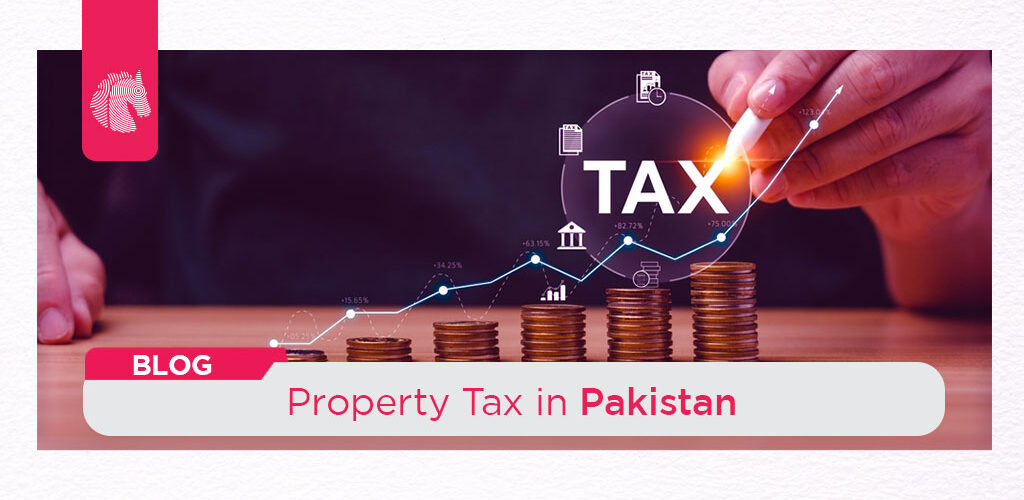Property Tax in Pakistan

The key to development in any country is based on its tax system. If you want a country to flourish and develop by leaps and bounds, it is important to fulfil our national duty, i.e., pay due taxes on time. Property tax in Pakistan varies from one city to another. Moreover, the tax differs according to the size of the plot. You can simply convert the plot size into different measuring units to pay the exact amount. Our blog on plot size conversion is helpful to know the exact size of land in other units.
Although by paying taxes, the people get benefits in Pakistan, the number of taxpayers is alarmingly low. It adds to the consistently fluctuating economy and financial condition of the country. With a lack of money in revenue, the government cannot provide basic facilities like healthcare, education, infrastructure development and security.
Moreover, it also means the government has to focus on taking loans from foreign banks and eventually paying them back at high-interest rates. It is our duty to pay taxes, and now the Pakistani government, along with FBR, is taking strong measures against non-filers and non-taxpayers in the country.
Many real estate construction companies in Pakistan pay their due taxes on time and encourage others to do so. Paying taxes on time means less complication at the time of real estate deals. The most alarming thing about property taxes in Pakistan is that most real estate owners know very little about it.
Listening to terms like Capital Gain Tax on property or VAT confuses taxpayers, and lawyers often charge hefty amounts for facilitation. Therefore, many people prefer to avoid it.
We have designed this blog in a way that will be helpful for all to know about taxes and property taxes in Pakistan and what you should know about it. So, let’s get started:
Property Tax in Pakistan:
The term property tax stands for a specific amount of money that a real estate owner is obliged to pay to the country’s government. The taxes are taken to build the country for its development and prosperity. The amount is spent on various things, including development projects, bringing multinational companies in Pakistan, import of goods, distribution of salaries, etc.
The property tax does not stand only for a house; it includes all tangible assets a person owns and registered against their name. It can be a house, office building, shop, residential or commercial plot, housing societies, industrial or agricultural land, etc.
With the fluctuating economic conditions of Pakistan, only a few have proven to be successful choices for a career in business. Real estate investment is considered one of the top business ideas in Pakistan.
You can easily invest in top commercial areas of Islamabad Peshawar and generate long-term and short-term income. However, to ensure transparency and add RoI to your investment, ensure all due taxes are paid on the land or property.
Let’s get to know more about taxes in Pakistan:
What is Tax Year in Pakistan?
The tax year consists of 12 months, but the sequence of the month is different from the general month sequence. The tax year in Pakistan starts from 1st July to 30th June. It is also called fiscal year; for instance, the property tax year in Pakistan will be from 1st July 2024 to 30th June 2025.
Types of Property Taxes in Pakistan:
There are four types of Property taxes in Pakistan.
| Type | Definition | Rates | |
|---|---|---|---|
| Capital Gain Tax | The tax imposed on profit from assets, land or stocks | Starts from 5% | |
| Capital Value Tax | Tax imposed on property value according to the land value set by DC offices | Varies according to land value | |
| Withholding Tax | The tax imposed on sales and purchase of real estate | Starts from 3% for filers and 10.5% for non-filers | |
| Stamp Duty | It is imposed on legal stamped real estate transaction papers | 5 % of property value |
Let’s have a look:
Capital Gains Tax:
The CGT or Capital Gain tax is imposed on the amount the investor generates as profit on selling the assets. It is called a capital gain, a profit amount on things sold. These are also referred to as “realized” when assets (taxable) or stock shares are sold.
Gain tax on property in Pakistan is not applicable to unsold assets or unsold investments, regardless of how long the investors have kept them with them or how much the value of those items has raised. It is one of the taxes on sale of property in Pakistan 2024 applicable at the time of property or land sale.
Capital Gain tax on property in Pakistan in 2021-22 is 5% for gains up to 5 million PKR, while it gets double, i.e., 10% when the amount exceeds 5 million and stays under 10 million pkr. Likewise, the gain tax on property up to 15 million is 15 million and 20 % on gain exceeding 15 million pkr. The tax varies on commercial properties like shopping malls in Islamabad, which pay tax on different % from residential land or property owners.
Features of Capital Gain Tax
The main elements of the gain tax are as follows:
- The major aspects of Capital Gains Tax include:
- The investment sold once is CGT-owned
- Only profitable capital assets are subject to taxes, including bonds, jewels, real estate, and stocks.
- The loss on investment can be used to reduce or offset the gains tax. Therefore, investors sell their properties at a loss to pay less capital gain tax on property in Pakistan.
- It is important to note that the 4% Pakistan super tax in the fiscal year 2024 has been extended.
Capital Value Tax (CVT):
Capital Value Tax, or FBR gain tax, is a fixed amount tax set by the revenue authorities. The DC offices across the country impose the authorized rates on property. The rates are normally less than the actual market land rate.
The FBR property tax on the property is imposed at the time of sales. For instance, we buy real estate on the market value. However, the investor must pay the tax on the investment according to the price of the land. It is called Capital Value Tax or FBR gain tax on property.
Many people try to pay lower taxes by showing land is cheap; however, with the country’s upgradation and digitization of excise and taxation property tax departments, the system is getting better and more transparent. It helps to pay the due amount according to the actual land price of any real estate. The excise departments of every province are responsible for many tasks, including online vehicle verification and registration in Pakistan.
Things to note: Nay type of land and real estate transferred as a gift, exchanged, or abandoned all comes under the CVT. However, the transfer of property among blood relatives or between spouses is excluded from the list.
Advance Tax or Withholding Tax:
Features of withholding tax (WHT) in Pakistan, popularly known as Advance Tax, are as follows:
Residential property buyers are obliged to pay a 3% Withholding tax in Pakistan at the time of filing income tax returns. The non-filers, on the contrary, have to pay 10.6% on buying property. The rates are revised and applied from 1st July 2024.
The Withholding tax must be paid on every real estate investment if the value of land or property is above 4 million PKR.
The sellers of land or real estate property are obliged to pay tax at the time of sale. It is 1% for filers and 2% for non-filers.
The withholding tax is due only when the deal of buying and selling is done and the sales deed is registered officially. It is a sales tax in Pakistan that is implemented on real estate.
The % of taxes changes with amendments of law if you are planning to pay tax on sale of property in Pakistan 2024 you can check the updates % from relevant websites.
Stamp Duty:
It is not a tax but a small amount of money taken with property transaction papers. The paper contains important data and complete information on the deed, including payment cheques, commissions, licenses, etc. Stamp duty is paid around 5% of the property value. The top-notch real estate companies in Peshawar, Islamabad and metro cities help in the complete process of sales and purchase of the property.
How do you apply for property tax records?
The things one must have to apply for a record of property tax are:
- Applicant CNIC copy
- Proof of paid taxes on property
- Applicants by the registered property owner in plain paper duly affixed by the court.
How to Calculate Tax?
The property tax or any other tax can be calculated online. The property tax online check is also possible by following simple instructions from the relevant excise and taxation department website.
Property Tax payment timings:
The property tax must be paid every year by property owners in a one-month window, i.e., from the 1st of September to the end of the 30th of September, with only a 5% rebate amount of the running fiscal year.
Let’s sum up:
That’s all for now! We hope paying property tax in Pakistan will be easier for all property buyers and sellers. Stay Tuned to the AH Blog page and get informed with the latest updates about real estate in Pakistan. On a departing note, remember that paying tax is our national duty, and we should fulfil it promptly as responsible Pakistani citizens.
Frequently asked questions FAQ’s:
What is the tax rate on property in Pakistan?
There are different taxes imposed on real estate; the gain tax on property on the residential property starts from 5%
What is the property tax in Pakistan in 2024?
The property tax in Pakistan or WHT is 3 % for filers and 10.5% for non-filers.
How much is property tax in Punjab, Pakistan?
In the province of Punjab, the property registration tax rate is 3% of its market value. However, it is subject to location and type of property.
What is the tax on 5 Marla House?
The tax on 5 Marla houses is 5% of the total value. It is important to note that the different 5 Marla house designs in Pakistan do not affect tax rate spikes and decreases. However, the property’s location and region can affect the tax % on the 5 Marla house.
Read More Blogs:
















